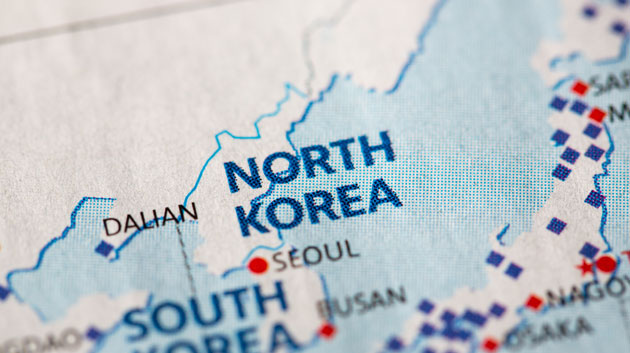Not China But The US Should Resolve North Korea Problem, Specialists Say
North Korea has conducted numerous nuclear missile experiments this year.
The NY Times published an article discussing how to stop this North Korean tyranny entitled “How the Next President Can Stop North Korea”.
The article, written by a specialist who once served as advisor to a high spirit, argued the following:
- At least three more tests are currently possible in the near future.
- Researchers think that North Korea could field an intercontinental ballistic missile that can reach the U.S. by 2020, but could actually happen much earlier.
- Until now, the U.S. had thought that China would solve the North Korea problem, but China is trying to use North Korea as a buffer against the U.S. This means the U.S. must itself use some power to solve this untenable North Korean problem.
- North Korea is controlling their nuclear prowess while they remain in need of support. “Talks between governments are the only way to know for sure”.
- The next administration must be willing to “take all necessary steps to protect our allies, even measures that can anger China, like the recent decision to deploy advanced missile defence manoeuvres in South Korea.”
- Time is running short.
As the article pointed out, North Korea’s threat has continued to increase this year, and it has strengthened connections with China. Before the five missile experiments on the 9th of September, North Korea said to China that these were inevitable to advance nuclear developments to counter the U.S.-South Korean military plan of action.
From this, it is clear that it is not China, but the U.S., that must take the lead in solving the North Korean problem. But skepticism remains as to the idea or viability of holding talks with North Korea.
North Korea is not a country that will understand via words.
Until now, they have agreed to hold talks for certain periods simply in order to acquire financial support, but they have still continued their nuclear and military developments.
Despite agreeing to renounce nuclear development at the Six-Party Talks held in 2005, the following year they launched missile and nuclear experiments. Since the Kim Jong-un administration has come to power, their military experiments have become more frequent. We are no longer able to communicate properly with North Korea via talks.
The next U.S. President must not compromise with talks and agreements, but carry out a plan that can realistically solve the North Korean problem.
The same can be said of Japan: Instead of just criticizing, Japan must engage in a more concrete debate.
South Korea is already preparing to face North Korea’s nuclear threat.
When South Korea mentioned nuclear sharing in a conference held in May, the U.S. rejected the idea, referring to the Obama administration’s “nuclear free world” ideology.
The U.S. currently holds nuclear sharing agreements with the countries in NATO (Belgium, Germany, Italy and the Netherlands). At this conference the U.S. mentioned their intension of dissolving even this agreement.
Nuclear arming debates have resurfaced in South Korea, and nuclear sharing was a compromise for holding nukes, but they too realize that we have gotten to a point where having talks now appears to be a pointless exercise in futility.
Japan should also hold nuclear weapons as a deterrent, but this is not immediately possible – a U.S.-South Korea-Japan nuclear sharing agreement would be a necessary action. In light of the irrational governance of Kim Jong-un, and his lack of adherence to world opinion and sanctions, this should continue to be a serious topic of discussion.


![Exposing North Korea's Menacing Leader: Kim Jong Un's Plot for a Psychological War (Spiritual Interview Series) [Paperback] by Ryuho Okawa/Buy from amazon.com](/files/2016/09/160929_amazon.jpg)

















